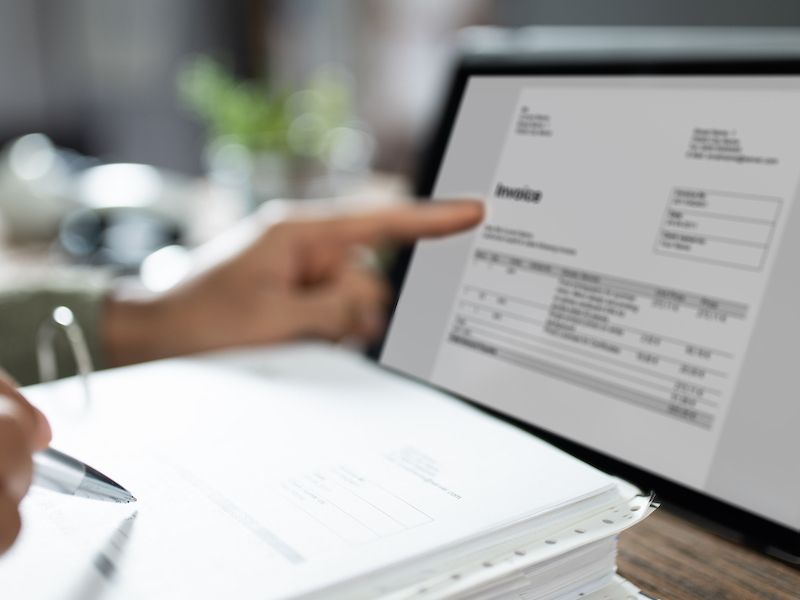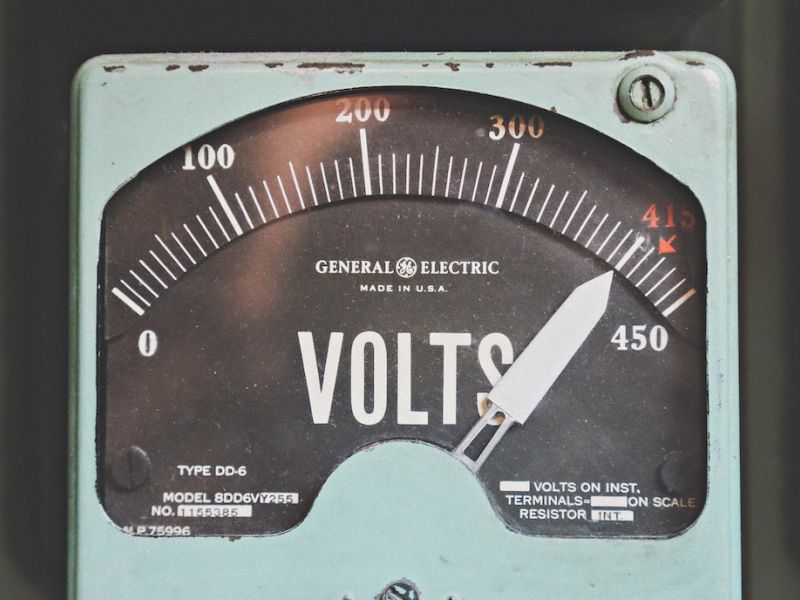
Is There VAT on Business Energy? – A Guide to VAT and Energy
Understanding VAT on business energy bills is essential for managing costs effectively. This guide explains the basics of VAT, how it applies to gas and electricity, and how businesses can qualify for reduced rates. Whether you’re a micro-business, a charity, or a larger organization, knowing the VAT rules and available exemptions can lead to significant savings. We’ll also cover the Climate Change Levy (CCL) and offer tips for further reducing your energy expenses.
What is VAT?
VAT (Value Added Tax) is a consumption tax charged on goods and services in the UK, including energy bills for businesses. It is charged at different rates depending on the type of business and its energy usage. For a full list of which services and goods VAT applies to, see here: VAT rates on different goods and services – GOV.UK (www.gov.uk)
The standard VAT rate is 20% which is applicable to most businesses. However, certain businesses, such as those with low energy consumption or those operating as charitable or non-profit organizations, may qualify for a reduced rate of 5%.
If you are a VAT-registered businesses you must:
- Include VAT in the price of all goods and services they sell at the correct rate.
- Keep records of VAT paid on business purchases.
- Account for VAT on imported goods.
- Submit VAT returns to HM Revenue and Customs (HMRC) every three months, detailing VAT charged to customers and paid to other businesses.
- Pay any owed VAT to HMRC.
The VAT owed is the difference between VAT collected from customers and VAT paid to suppliers. If more VAT is paid than collected, HMRC usually refunds the difference. Understanding VAT is essential for managing business expenses effectively.
Should my Business be VAT Registered?
Whether your business should be VAT registered depends on your taxable turnover. If your business has a taxable turnover exceeding £90,000 in a 12-month period, VAT registration is compulsory. This threshold increased from £85,000 in April 1, 2024.
VAT registration allows businesses to reclaim VAT on purchases and charge VAT on their sales. For businesses with turnover below the threshold, voluntary registration can still be beneficial as it enables VAT reclaim on business expenses, improving cash flow and potentially reducing costs.
At professional energy services we do not offer financial advice on if you should be VAT registered or not, but we do offer advice on energy costs and expenditure.
When you register for VAT, HMRC will send you a VAT registration certificate. This certificate includes:
- Your VAT number
- The date by which you need to submit your first VAT return and payment
- Your ‘effective date of registration,’ which is either the date you exceeded the VAT threshold or the date you requested to register.
Should You Pay VAT on Gas and Electricity for Businesses and How Much is Charged?
Yes, businesses are generally required to pay VAT on gas and electricity bills. The amount of VAT charged on business gas and electricity depends on whether the business is eligible for the standard or reduced rates. Eligibility for the reduced rate often depends on the level of energy consumption or the nature of the business activities.
- Standard Rate: Most businesses pay 20% VAT on their energy bills.
- Reduced Rate: Some businesses qualify for a reduced VAT rate of 5%. Eligibility for this rate is for any of the following organisations:
- Businesses with low energy consumption: Using less than 33 kWh of electricity or 145 kWh of gas per day.
- Charitable and non-profit organizations: Using at least 60% of energy for non-business or residential purposes. If the premise is ‘mixed use’, where business operations occur but so do non-business activities, charities can still apply based on the portion of energy consumed for the non-business use.
- Residential Use: Buildings where 90% of the energy is used for residential purposes, such as care homes or student accommodations.
- Self-catering Holiday Accommodation
- Free Schools and Educational Academies
- Places of Worship: such as nunneries and monasteries.
- Places of Business That Are Also Your Home.
It’s important to accurately track and classify energy usage as it helps to ensure you are on the correct VAT rate can help manage your business’s energy costs effectively, this is especially true of the ‘mixed-use’ deal mentioned for non-profits and charities sharing a business premise. This arrangement allows your business to pay the lower VAT rate on qualifying parts, while the rest is charged the standard 20%. To set up a mixed-use deal, discuss it with your energy provider or the energy expert handling your price comparison.
How Much is VAT on an Average Business Electricity and Gas Bill?
The VAT amount on an average business electricity and gas bills varies based on the size of the business and its energy consumption shown in the table below:
| Microbusiness | Small Business | Medium Business | |
| Average Annual Electricity Bill | £2,748 | £5,879 | £12,386 |
| VAT at 5% | £137 | £294 | £620 |
| VAT at 20% | £550 | £1,176 | £2,477 |
| Average Annual Gas Bill | £924 | £1,857 | £3,786 |
| VAT at 5% | £46 | £93 | £189 |
| VAT at 20% | £185 | £353 | £757 |
Knowing these amounts helps businesses plan their budgets and ensures they are billed correctly.
How to Find Out Your Business Energy VAT Rates
To determine the VAT rate applied to your business energy bills:
- Check Your Energy Bills: VAT rates are typically listed on your energy invoices. Review these documents to see the rate being charged.
- Contact Your Supplier: If the VAT rate is not clear from your bills, reach out to your energy supplier for clarification.
- Review Eligibility: Assess your business’s energy consumption and nature of operations to determine if you qualify for the reduced rate of 5%.
Do Business Energy Quotes Include VAT?
No, business energy quotes typically exclude VAT. This is to present a clearer picture of the actual energy costs and also because some businesses will qualify to pay the lower rates of VAT. This exclusion allows businesses to compare quotes based on the net cost of energy without the added tax. When reviewing energy quotes, it’s important to:
- Check whether the quoted prices include or exclude VAT.
- Factor in the 20% standard VAT rate (or 5% reduced rate, if eligible) to understand the total cost.
Can Schools and Universities Claim VAT Back?
Yes, schools and universities can claim VAT back on their energy bills if they are VAT-registered and the energy is used for business purposes. This includes:
- Educational Activities: VAT can be reclaimed on energy used for educational and administrative activities.
- Commercial Activities: If the institution engages in commercial activities, such as renting out facilities, VAT on the associated energy costs can also be reclaimed.
By ensuring proper VAT registration and accurate documentation, educational institutions can effectively manage and reduce their energy costs.
How to Apply for Lower Energy VAT Rates
If your business qualifies for the reduced VAT rate of 5%, follow these steps to apply:
- Identify Eligibility: Ensure your business meets the criteria for reduced VAT, such as low energy consumption or charitable status.
- VAT Declaration Form: Request this form from your energy supplier.
- Complete the Form: Provide accurate details about your business energy usage and eligibility criteria.
- Submit the Form: Return the completed form to your energy supplier.
- Confirmation: Await confirmation from your supplier that the reduced VAT rate will be applied to your future energy bills.
This process ensures you receive the appropriate VAT rate, potentially lowering your energy costs.
Can Your Business Claim VAT Back?
Yes, you can reclaim VAT on business energy bills if the energy is used for business purposes. According to the UK government’s official guidance, VAT-registered businesses are entitled to reclaim VAT on items purchased for business use, including utility bills such as gas and electricity. If the energy is used exclusively for business activities, the full VAT can be reclaimed. If there is a mixed use (both business and personal), you can only reclaim the proportion of VAT that corresponds to the business use.
For accurate information, you can refer to the GOV.UK guide on reclaiming VAT on business expenses and the detailed VAT Notice 701/19 on fuel and power which outlines specific scenarios and rules regarding VAT on energy supplies for businesses.
Can Claims for VAT Be Backdated?
Yes, businesses can backdate claims for overpaid VAT on energy bills. To do this:
- Gather Documentation: Collect all relevant energy bills and records showing VAT payments.
- Determine the Claim Period: You can claim back overpaid VAT for up to four years.
- Submit a VAT Adjustment Form: Contact your energy supplier and request the necessary form.
- Provide Accurate Details: Complete the form with accurate information about the overpaid VAT amounts.
- Submit to Supplier: Return the completed form to your supplier for processing.
Backdating claims can help recover significant amounts of overpaid VAT.
Does the Climate Change Levy (CCL) Affect VAT on Energy Bills?
The Climate Change Levy (CCL) is a tax imposed on businesses to incentivise energy efficiency and reduce greenhouse gas emissions. While CCL is separate from VAT, it can significantly impact overall energy costs. The CCL is added to energy bills in addition to VAT, increasing the total cost. The current rates for the CCL are £0.00775 per kWh for electricity and £0.00465 per kWh for gas as of 2023. Some businesses are eligible for exemptions or discounts on the CCL including:
- Businesses who qualify for the reduced 5% VAT rate may also be exempt.
- Businesses that have entered into Climate Change Agreements (CCAs) can receive significant discounts. CCAs are agreements between businesses and the government to improve energy efficiency and reduce carbon emissions. Companies with a CCA can receive up to a 90% discount on the CCL for electricity and a 65% discount for gas.
Businesses must meet these specific criteria and apply through HM Revenue and Customs (HMRC) to receive their exemption or discount. It’s crucial to maintain accurate energy usage records and ensure compliance with the terms of any agreements when applying to HMRC.
How Can I Make Further Savings on My Energy Bills?
To make further savings on your business energy bills, consider the following:
- Regularly compare and switch energy suppliers to find better rates.
- Implement energy-saving measures like LED lighting, energy-efficient appliances, and proper insulation
- Install a smart meter to monitor and manage energy usage effectively.
- Conduct regular energy audits to identify areas for improvement.
- Explore renewable energy options, such as solar panels, which can reduce long-term costs.
Navigating VAT on business energy bills can be complex, but understanding the different rates, eligibility criteria, and relief options can significantly help reduce your business costs. By staying informed about VAT regulations, efficiently managing energy usage, and exploring available exemptions like the CCL, businesses can optimise their energy costs. Regularly reviewing your energy strategy and keeping up with regulatory changes will ensure your business remains compliant and takes full advantage of potential savings opportunities.
Related Posts

Everything you need to know about your Business Energy Bill

A Guide to Business Energy Contract Renewals
